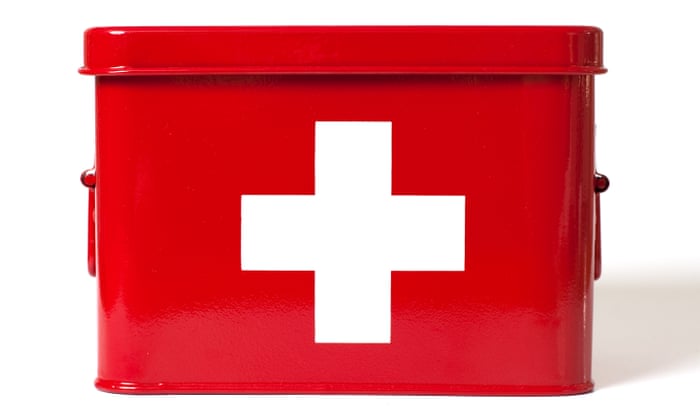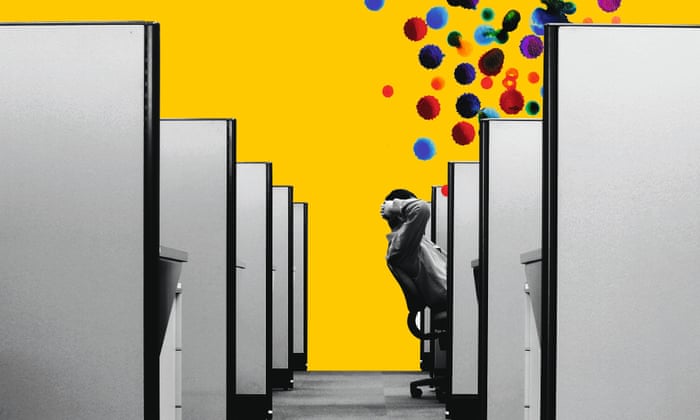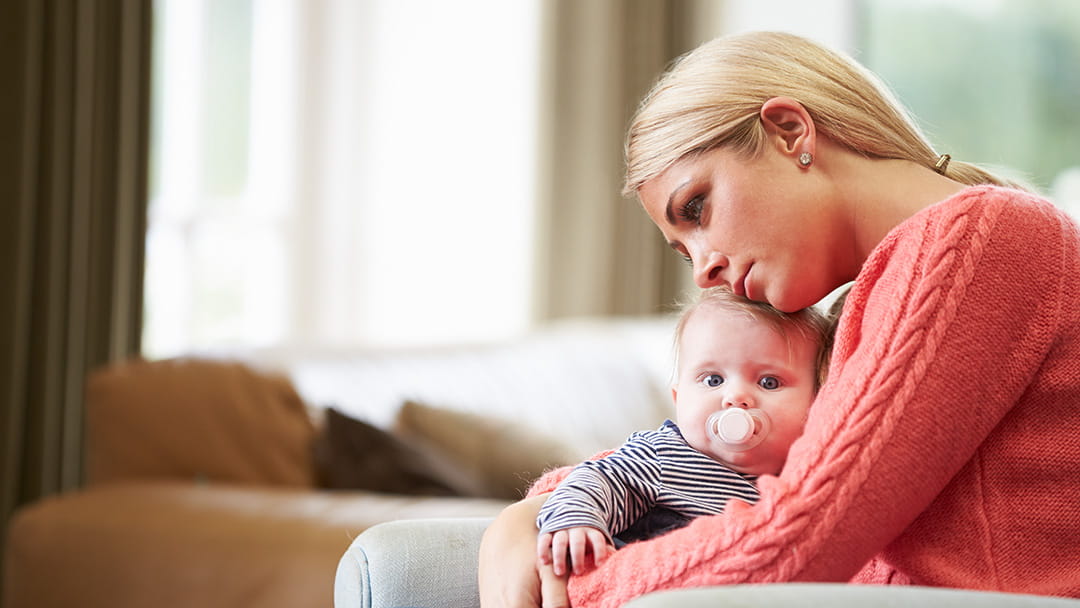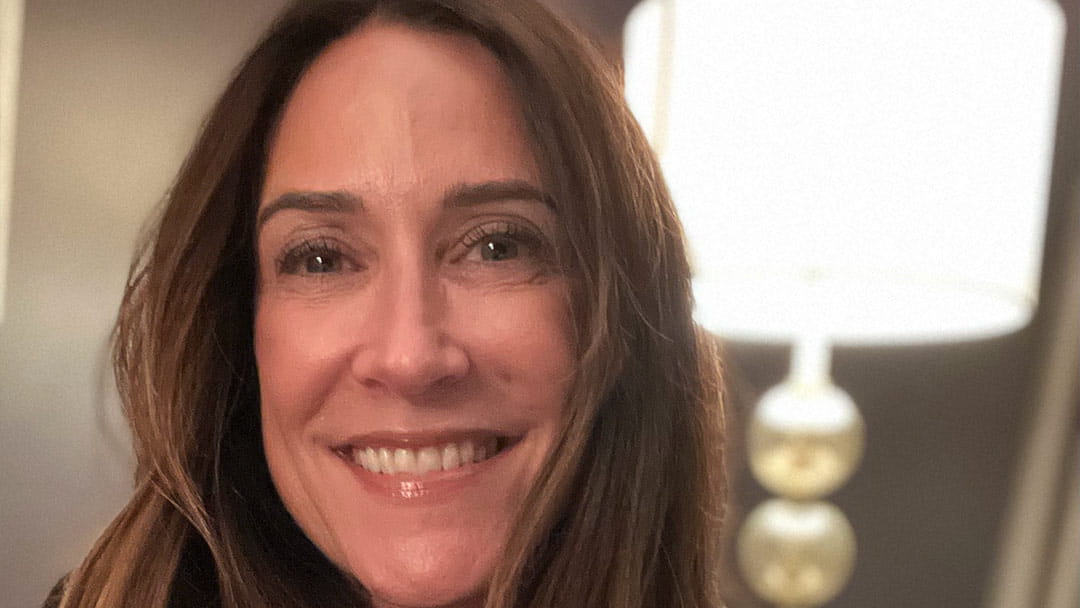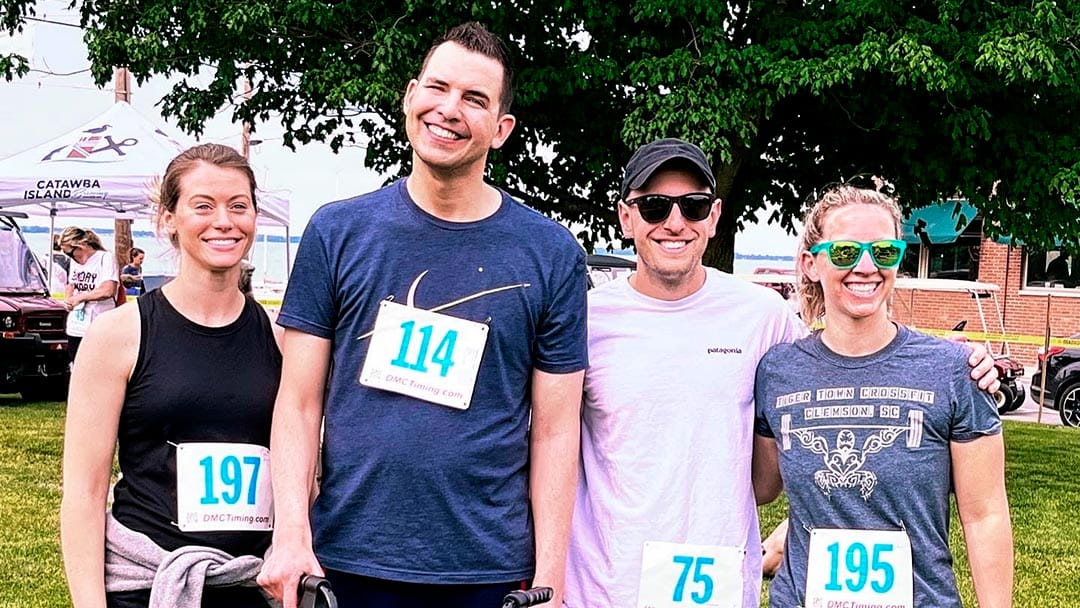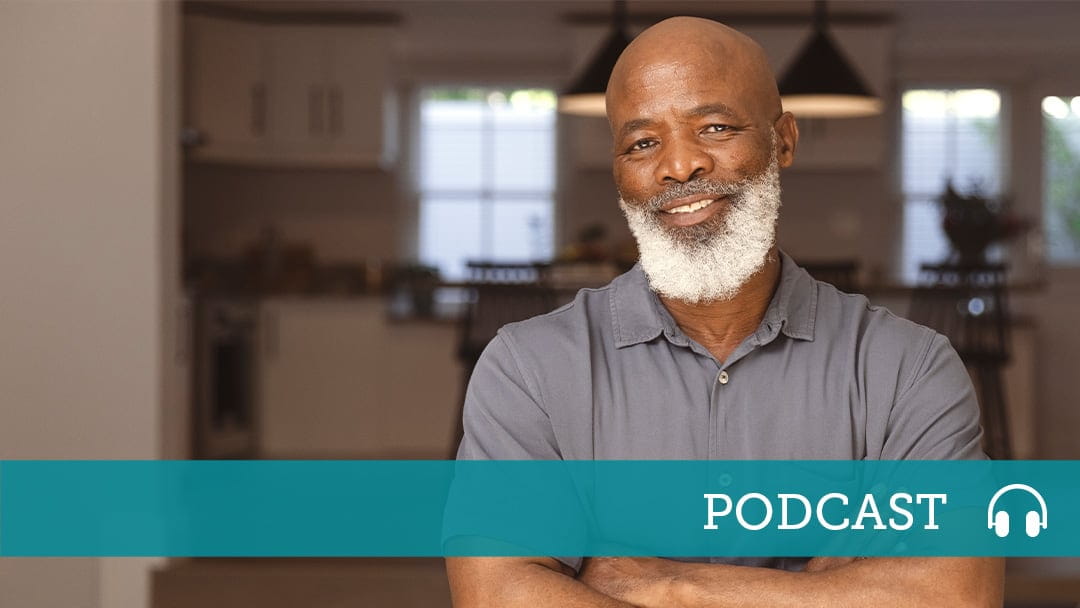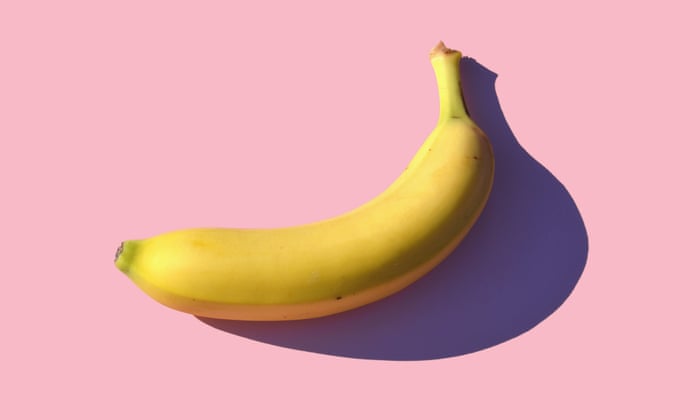
As ever relating to bananas, Sarah has been on excessive alert this week, after the revelation {that a} Swedish authorities minister, Paulina Brandberg, has a banana phobia extreme sufficient that aides should guarantee there are “no traces” of the fruit anyplace in her neighborhood. “We are going to safe the convention in order that there are not any bananas,” promised the organisers of 1 occasion, in emails leaked to a Swedish newspaper.
Whereas a lot of the protection has been mocking, for Sarah, it’s fully comprehensible – she additionally has a banana phobia. She is so attuned to the risk that she will be able to sniff out a banana, or a just lately consumed one, in a room. “Then, I typically have a robust disgust response,” she says. This often includes feeling sick. “There’s additionally a hypervigilance, so I’ll be aware of the place they’re and really feel them drawing my consideration.”
It wasn’t at all times the case. Like most infants and toddlers, Sarah liked bananas. Then, when she was about 4, she went off them, seemingly in a single day. Sarah, a neuroscientist, says she doesn’t keep in mind any “antagonistic incident”, however provides: “Primarily based on the speculation of phobias, one would hypothesise that one thing had occurred, that I’d interacted with one negatively, given it got here on so quick.”
For these of us who’ve by no means interacted with a banana negatively, it may be arduous to grasp, which Sarah accepts. As a youngster, it was embarrassing, “as a result of it’s a bit extra of a comedy fruit”. At college, her housemates would prank her: “They’d cover them in my mattress and go away little notes.” She laughs – she is ready to see the humorous facet, even whereas barely disguising her disgust. “They have been my mates; it’s light teasing.” No less than the bananas weren’t unpeeled. If it had been a unadorned banana? “Oh my God,” she says, voice rising. “I can’t even think about. I’d make them change the sheets.”
Nowadays, Sarah largely has it beneath management. She will go to the grocery store and avoid the bananas, comforted by the actual fact the shop is massive and ethereal. It’s worse in a gathering room with a fruit bowl on the desk, a banana squatting menacingly. “I’ll simply sit far-off from it. I can address somebody consuming one, though I’d attempt to get as far-off from them as potential. However when somebody surprises me or I can’t escape, I would possibly get extra panicky.”
As soon as, she was on a flight and woke to find everybody round her had been delivered their morning snack – a banana. Not too long ago, she was on a bus and needed to transfer away from a discarded peel. “More often than not, you may keep away from them. I’ve realized to seek out tactful methods of eradicating myself with out making it apparent,” she says.
Sarah has revealed analysis on methods to deal with different phobias, though she has no intention of attempting to remedy herself. “Regardless that it’s not essentially sensible to have a banana phobia, the considered having to undergo publicity remedy feels so horrific that I choose to maintain the phobia.”
She has a scientist’s curiosity, although, and has tracked down tales about others with uncommon phobias. “There appear to be issues that you’d suppose are actually uncommon that come up a bit extra prominently than probability – bananas appears to be certainly one of them,” she says. “Buttons is one other. It doesn’t appear to be fully random.”
The rational facet of our mind tells us we’re being irrational, however we nonetheless can’t cease feeling that method
Concern of spiders or snakes is comprehensible from an evolutionary perspective, she says. With bananas, “I’ve speculated that they’ve fairly a particular odor and texture, which appears to be entwined with a disgust response”. Maybe our survival intuition, she suggests, is to keep away from meals which can be “mushy”, which could point out they’re rotten.
Sarah is aware of her banana phobia is odd, though its comedian nature brings its personal issues (no person, certainly, would put a spider within the mattress of an arachnophobe). She doesn’t have a tendency to inform folks, despite the fact that it impacts her. In her skilled life, she worries that “it would make me appear ridiculous and fewer credible” (neuroscience, like politics, continues to be dominated by males).
“The rational facet of our mind tells us we’re being irrational, however we nonetheless can’t cease feeling that method,” says Dave Smithson, a spokesperson for Nervousness UK. Phobias are typically realized – my arachnophobia most likely comes from my mom, who most likely obtained it from her mom, and so forth. However they will additionally develop, at any age, as a consequence of trauma.
Smithson says Nervousness UK has a protracted listing of reported phobias: “Stuff you simply by no means would have imagined – shadows, animal pores and skin, railways, concern of gravity. What would trigger that? However it may occur. Folks have fears about all types of issues.” What makes it tougher for these with extra uncommon phobias is the concern of being ridiculed. “They don’t discuss it, they don’t search assist. Folks will organise their lives round not dealing with that concern.”
As a result of many individuals maintain their phobias to themselves and few search therapy, phobias will not be a well-researched space of tension and their prevalence is hard to establish. The newest Grownup Psychiatric Morbidity Survey for England, which is 10 years outdated, discovered that 2.4% of individuals had a phobia. Within the US, an estimated 12.5% of adults expertise a phobia in some unspecified time in the future, in accordance with the Nationwide Institute of Psychological Well being.
The “medicalisation” of a phobia is a comparatively current idea, says Joanna Bourke, a historian and the writer of Concern: A Cultural Historical past. “Folks have been fearful of issues for ever, however ‘phobias’ is a late 18th-century idea,” she says. “Even such a factor as agoraphobia, which is essentially the most researched of all of the phobias – the concern of open areas – is a late-Nineteenth-century invention. To some extent, they’re culturally constructed. What we’re afraid of displays new applied sciences, new issues in the environment.” Our ancestors might nicely have been afraid of spiders or heights, however they gained’t have had a phobia about air journey.
Kate Summerscale particulars uncommon phobias in The Ebook of Phobias and Manias. Though clowns have been disturbing for hundreds of years, a phobia of clowns (coulrophobia) is a late-Twentieth-century thought. Summerscale traces it to the conviction in 1980 of an Illinois serial killer and kids’s entertainer, then the recognition of Stephen King’s horror novel It.
Summerscale traces trypophobia – a concern of a cluster of small holes – to a picture that unfold across the web in 2003, supposedly exhibiting a maggot-infested breast. It was faux, however loads of folks have expressed their horror of clustered holes in every little thing from crumpets to, in 2019, the grouped digicam lenses on the again of the iPhone 11 Professional. (Evolutionary psychologists have theorised that being averse to clustered holes or bumps could possibly be our warning system in opposition to infectious illness.)
Folks can develop exaggerated fears of issues that the majority of us are fearful of – dying, sickness – however one principle for particular, uncommon fears is that it includes “some sort of displacement from one thing that’s unconsciously scary”, says Bourke. An object reminiscent of a banana or a ball of cotton wool turns into a stand-in for the underlying concern.
Cognitive behavioural remedy, which might embody gradual publicity to the concern, is extensively used to deal with phobias. Digital actuality has been launched, too; one examine discovered that “very temporary publicity” remedy – so fast that the individual isn’t even conscious they’ve seen a picture – may match.
Man Baglow, the medical lead on the phobia clinic MindSpa, makes use of neurolinguistic programming (NLP) – a method of adjusting pondering patterns – to disrupt the affiliation between an object and concern. Though NLP, which has been round because the Seventies, has its detractors – who say there has not been sufficient rigorous proof for it – Baglow insists it may work rapidly for phobias.
In 20 years, he has come throughout banana phobia solely twice, he says. In a single case, a girl had, as a baby, by chance electrocuted herself on the identical time her eyes fastened on a bowl of bananas. “The bananas obtained related to the shock,” he says. “The thoughts creates patterns so it may keep away from issues in future that may be harmful or threatening.”
Baglow says one man had a tomato phobia related to cruelty he skilled in childhood. “You may have a phobia of something, as a result of trauma can connect to just about any object or scenario,” he says. “It’s the survival response gone barely awry.” Phobias can have a big affect, regardless of how ridiculous they might appear to others. “Avoidance, which is among the key definers of phobia, can result in every kind of behaviours and may actually prohibit folks’s lives.”
Avoidance is Keir Gale’s principal technique, though it’s arduous – he has a phobia of buttons, which is widespread sufficient to have been given a reputation: koumpounophobia. Buttons, when you begin to discover them, are all over the place. “I’ve to avert my eyes in the event that they’re apparent on any individual’s clothes,” says Gale. He has needed to clarify to folks why he can’t take a look at them.
What occurs when he encounters a button? “I really feel nauseous. If I contact one, which it’s a must to do sometimes, I’ve to wipe my fingers afterwards, as a result of I really feel like they’re soiled and greasy and customarily disagreeable.” He experiences “a sort of crawling sensation within the pores and skin”. Simply the sound of buttons from a shirt or jacket sleeve clattering on a desk makes him squirm. “Virtually each sensory enter is affected.”
He has had what he describes as a revulsion, somewhat than a concern, for so long as he can keep in mind – his mom must take away buttons from his clothes. Gale, who’s retired, generally needed to put on formal clothes for work, which was tough. Nowadays, he can put on trousers with a button fastening so long as it may be coated by a belt. “Cover covers have at all times been an issue and I’ve tried to seek out ones with poppers. If I believe my toes would possibly contact them whereas I’m in mattress, I get very anxious.” Buttons on upholstery are horrifying.
I match it into my day – I anticipate the quantity of additional time it’s going to take me so I don’t should stroll throughout grass
He’s a little bit embarrassed about it, he says, including that those that do know “don’t actually have any thought how deep the affect is, in order that they don’t essentially take precautions”. They don’t ridicule him, however there’s actually bewilderment. “Which is truthful sufficient – I’m bewildered. For them, it’s nothing, however to me it’s very actual. My thoughts gained’t let me consider that different folks aren’t bothered by them.” He suspects he’s neurodiverse and that his phobia is expounded. I realise that, all through our telephone name, he hasn’t as soon as uttered the phrase “button”. “I hate it. I don’t like having to say the phrase.”
Bettina Hunt, an writer of romcom novels, has a phobia of grass. “I simply don’t like what may be beneath it, just like the mud and issues popping out of it.” It’s arduous to elucidate, she says – irrationality being central to many phobias – but it surely’s not merely a concern of dust or grime. She will tolerate a lush inexperienced garden, maybe at a stately dwelling, “however I wouldn’t wish to stroll on it”. The concept of sitting on grass is not possible. “Picnics? Absolute nightmare. I’ll do something to keep away from them. If I completely should, then I’ll arise.” She has by no means walked barefoot on a garden.
She has hated grass for so long as she will be able to keep in mind. She by no means needed to go to the park, like different youngsters, and prevented PE in school. Being made to do a wheelbarrow race, on her fingers, her face near the strands, as one other little one held her toes, stays a visceral and revolting reminiscence. She has a patio, however has by no means been to the shed on the backside of the backyard, as a result of it includes crossing grass. Hunt lives by a inexperienced, which the remainder of her household lower throughout; she takes the good distance spherical. “I match it into my day – I anticipate the quantity of additional time it’s going to take me so I don’t should stroll throughout grass.”
Polly Barrett has a balloon phobia, which has meant actually operating away from the issues. “Once I see a balloon, I often begin to get actually sizzling and sweaty. My respiration will get fairly shallow and quick and I’ve the sensation of combat or flight,” she says. “Then comes excessive embarrassment, as a result of it’s ridiculous.” As soon as, she was in a restaurant when somebody sat on the subsequent desk with a toddler who had a balloon. The extra Barrett tried to suppress her rising discomfort, the more severe it obtained: “I ended up bursting into tears and operating out.”
Her concern comes from the balloon’s potential to pop – she will be able to’t deal with the sight of a balloon waving round, or two balloons rubbing collectively – and is linked to her different phobia: sudden loud noises. She has skilled this for so long as she will be able to keep in mind. As a baby, a loud increase or loud music may make her burst into tears; even now, a shocking bang, like a automobile tyre blowing out, can provoke the identical response.
Intriguingly, Barrett is a musician – her sensitivity to sound is clearly a profit in making music, even when it comes with the potential for shock. When she works with sound engineers, she tells them she will be able to’t deal with the popping or squeaking that comes from tweaking gear. Pals guarantee no balloons are current on the events to which she takes her youngsters.
Nowadays, she is extra open about it and individuals are understanding. “It’s solely within the final couple of years that I’ve correctly acknowledged and owned it, as a result of for ages I used to be so embarrassed.” She thinks she ought to most likely do one thing about it, “as a result of I don’t know what it’s linked to in the remainder of my psyche. If I obtained over this concern, perhaps it could give me this complete new lease of life.”
A trigger for celebration, maybe – at which she might tolerate balloons and the popping of champagne corks.


